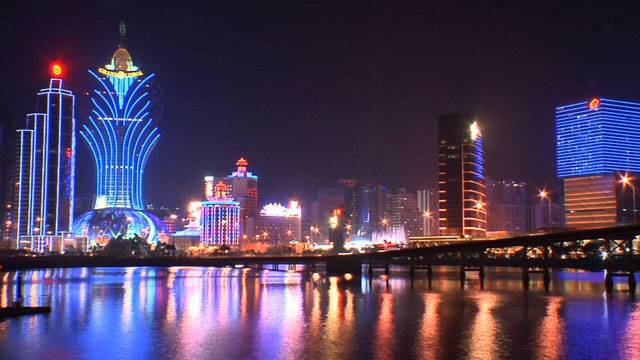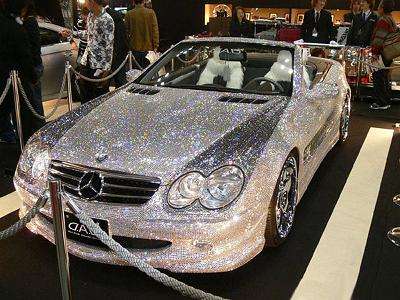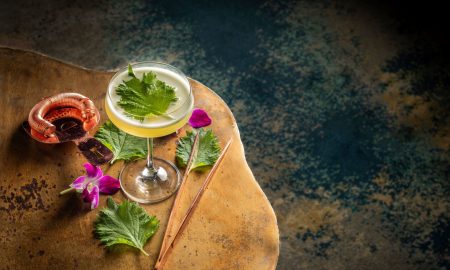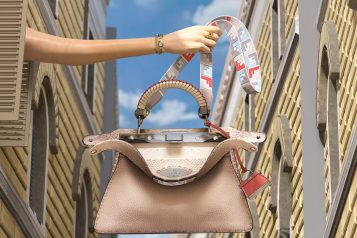While Las Vegas is the gambling center for the United States, thousands of miles away in China, Macau holds that honor. Despite their geographical distance, Macau has effects on Las Vegas that are both good and bad.
Macau is the only place in China where casinos are legal and it is the site of a resort gold rush which was sparked by the opening of the market to foreign competition in 2002. Dozens of casino resorts have been built in just seven years and the region has accomplished more in that time than Las Vegas has in 50 years.
Baccarat, the game favored by high-rolling Chinese gamblers, has fueled that boom and generated a ripple effect on the Las Vegas Strip, where such gamblers congregate in the United States.
Last year alone on the Las Vegas Strip, Baccarat players wagered a record $10.7 billion, a 24% increase from 2009 and all of this during an economic downturn. Baccarat accounted for approximately 17% of all wagering on slots and other casino games last year.
While those numbers are certainly impressive, Macau is even more so. Macau saw $23.4 billion in gambling revenue last year, mostly from baccarat, which is twice that of Nevada’s, and it is three times what Nevada generated through June this year. The surge in baccarat revenue is the one major effect that Macau and its exponential casino growth have had on Las Vegas, now running a distant second to the Chinese enclave in gambling volume and profits.
Aside from that though, the emergence of Macau as the world’s gambling leader seems to have little effect on Las Vegas, where gambling accounts for a minority of Strip revenue and is increasingly being outdone by other forms of entertainment.
But how profitable are Chinese gamblers for Las Vegas? It’s uncertain, but the emergence of an Asian version of Las Vegas is still presenting a double-edged sword for operators of luxury resorts in the U.S. that aim to keep their biggest customers as close as possible to the gambling action. It also presents new challenges for Western companies who are used to a different money culture than what is typical in China. To attempt to adjust, Las Vegas resorts have long capitalized on the Asian propensity to gamble by employing casino hosts well-versed in Asian culture to travel the globe cultivating customers. However, some believe that the recent baccarat boom is more than just having a well-versed Asian host and more the result of an “aggressive marketing push by Las Vegas resorts to court Chinese gamblers.” Instead of focusing on bringing gamblers to Las Vegas, operators have rushed to export their product to Macau.
The three Las Vegas casino giants granted licenses to operate in Macau have opened six resorts, and more are being built. Those operating in Macau the longest, Las Vegas Sands and Wynn Resorts, have effectively become Chinese companies in that most of their earnings are generated in Asia.
However, back in Vegas, apart from Chinese New Year, which typically attracts crowds for Chinese-themed events and entertainment, the influx of Chinese gamblers on the Strip often falls under the radar. With the exception of Asian gaming pits and restaurants at several casinos and the Asian-inspired décor at Wynn Las Vegas and Encore, there’s little to indicate the importance or influence of Asia to the average Las Vegas tourist.
The Chinese style of gambling is serious transaction with symbolic significance, in contrast to the more casual carnival that unfolds outside the sequestered baccarat pit. In many casinos, high-rollers play in sequestered rooms away from the casino floor or behind closed doors. Encore, Venetian and Palazzo offer little-known upstairs casinos reserved for high-rollers—mostly Asians who prefer to gamble privately.
In Macau, anonymity is key and most gambling occurs behind closed doors in VIP rooms. Casino operators in Macau rent space in their casinos to third parties that run the games and issue credit to players. According to Roger Shaw, executive vice president and corporate product group chairman for Shuffle Master, which is based in Las Vegas and does business in Macau, “A lot of these high-rolling Chinese gamblers don’t want people to know they’re rich. They don’t want to be known at all.”
Another issue Las Vegas is having with Chinese gamblers coming to the U.S. is actually getting them here. A small number of visa offices in China and lengthy wait times for U.S. travel visas from China mean monthly wait times for gamblers seeking to try their luck in the United States. For those who secure visas, getting here can mean a day lost to travel, including stopovers at major hubs such as Los Angeles before getting the VIP treatment on a casino’s private jet and a limo to the high-roller suite. As a result, experts say the $10.7 billion wagered on baccarat last year primarily stems from a select group of Asians for whom a trip to Las Vegas represents a new kind of gambling status in an exotic locale.
While Vegas is benefiting from the Macau effect today, it stands to lose revenue years from now as megaresorts continue to spread across Asia, giving gamblers fewer reasons to come to Vegas. It’s likely that as similar investments are seen elsewhere, players are just going to opt not to travel so far to gamble.
Source: Vegas Inc.
Like Haute Living Las Vegas? Join our Facebook page or follow us on Twitter @HauteLivingLV. Want Haute Living Las Vegas delivered to your inbox once a week? Sign up for our newsletter.





















